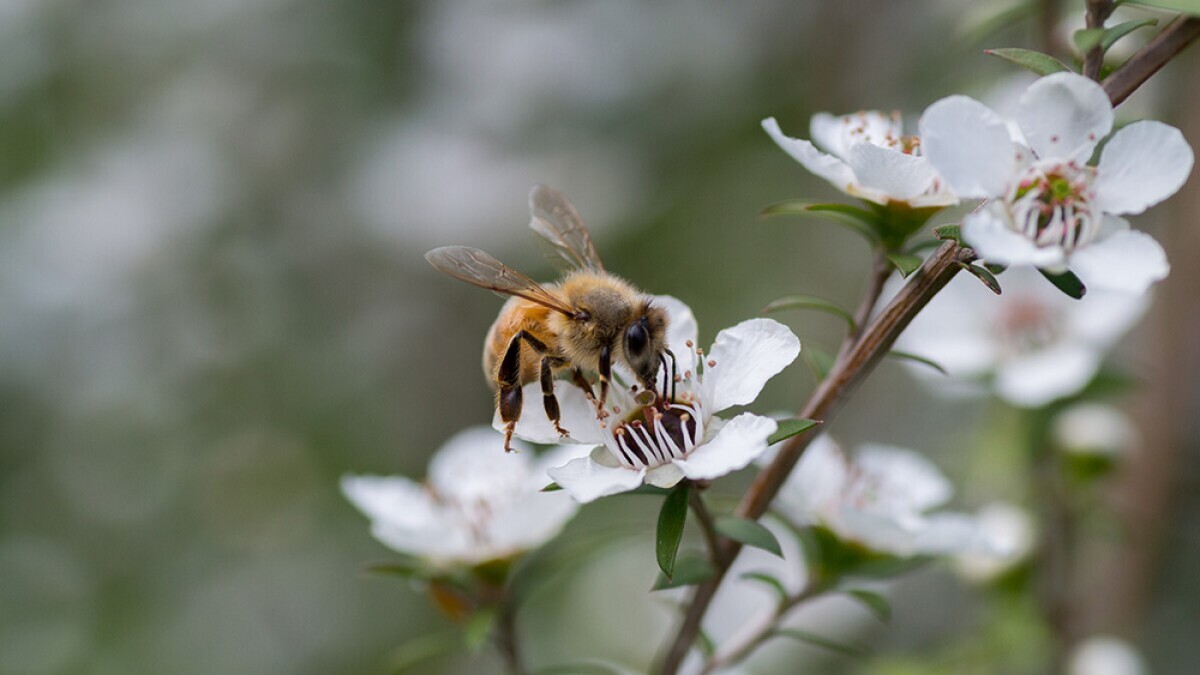
Samuel Dunkel
Website / graphics

Our most important employees are bees. Without bees there would be neither life nor delicious Manuka honey.
A single honeybee produces just about 3 grams of honey in its lifetime, which lasts an average of 35 days!
Honey bees, like all other bee species, normally have a purely vegetarian diet. To do this, the older workers in the hive fly out and collect nectar and pollen from flowering plants. In order to collect mainly from the South Sea myrtle, the bees are brought close to it when it is in bloom. The nectar is brought home in the honey stomach and the pollen in the so-called baskets (a special device on the hind legs) and distributed directly in the brood nest to younger workers to feed the brood. If there is a surplus, the pollen is stored next to the brood nest as a source of protein and the nectar is stored in honeycomb cells above the brood nest. The nectar is thickened by the removal of water, which makes it durable. The result is a supersaturated, highly osmotic and syrupy sugar solution that is no longer fermentable - honey.